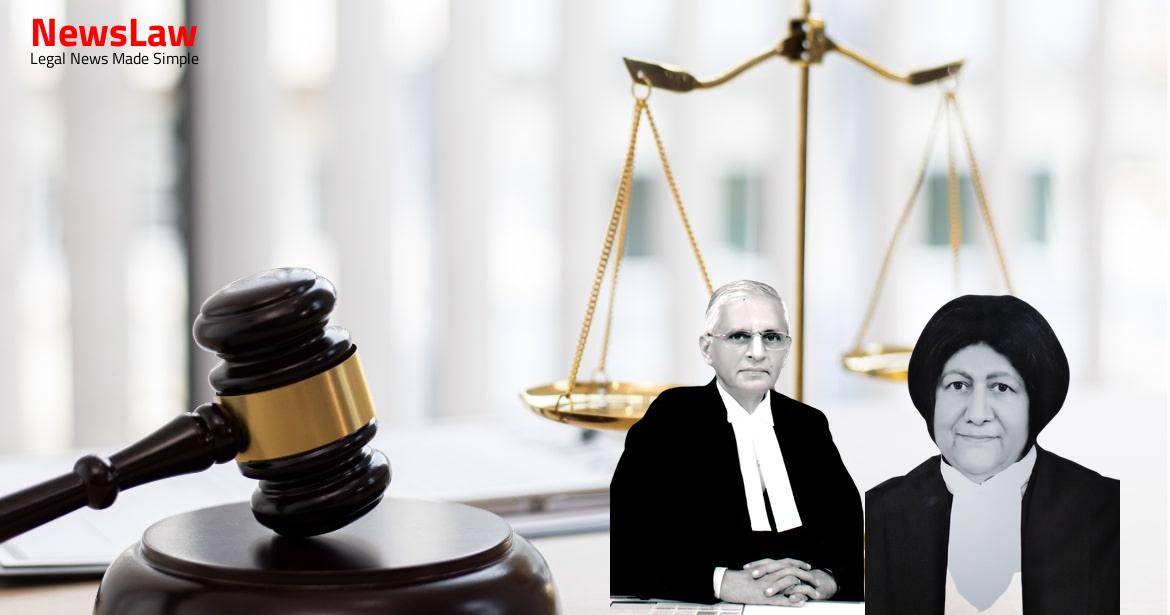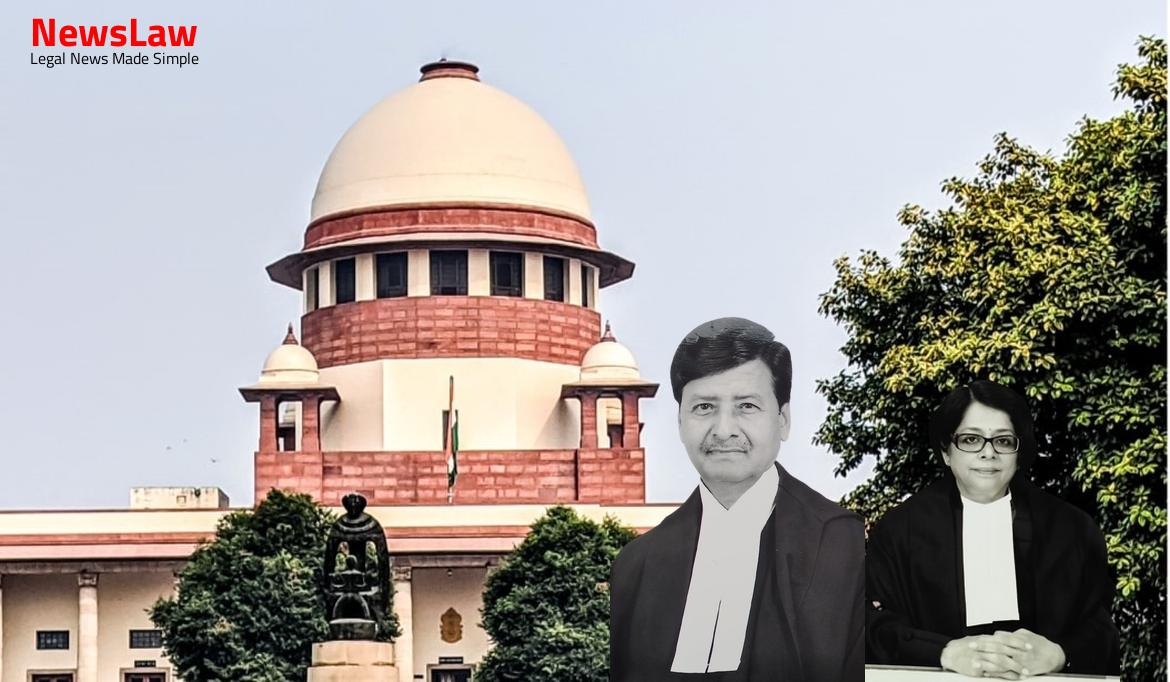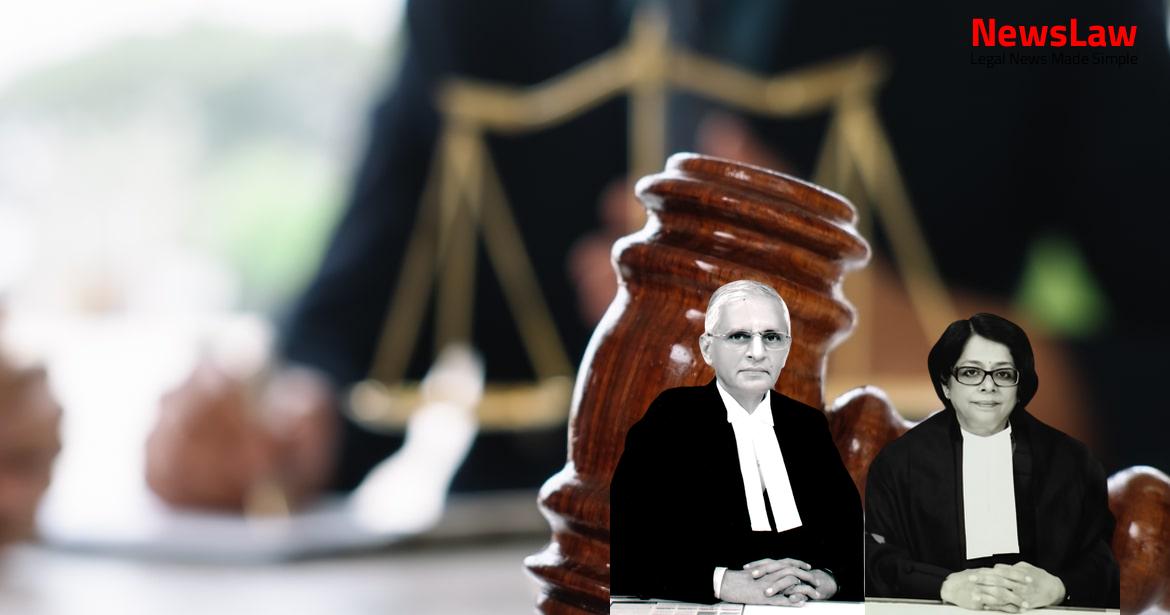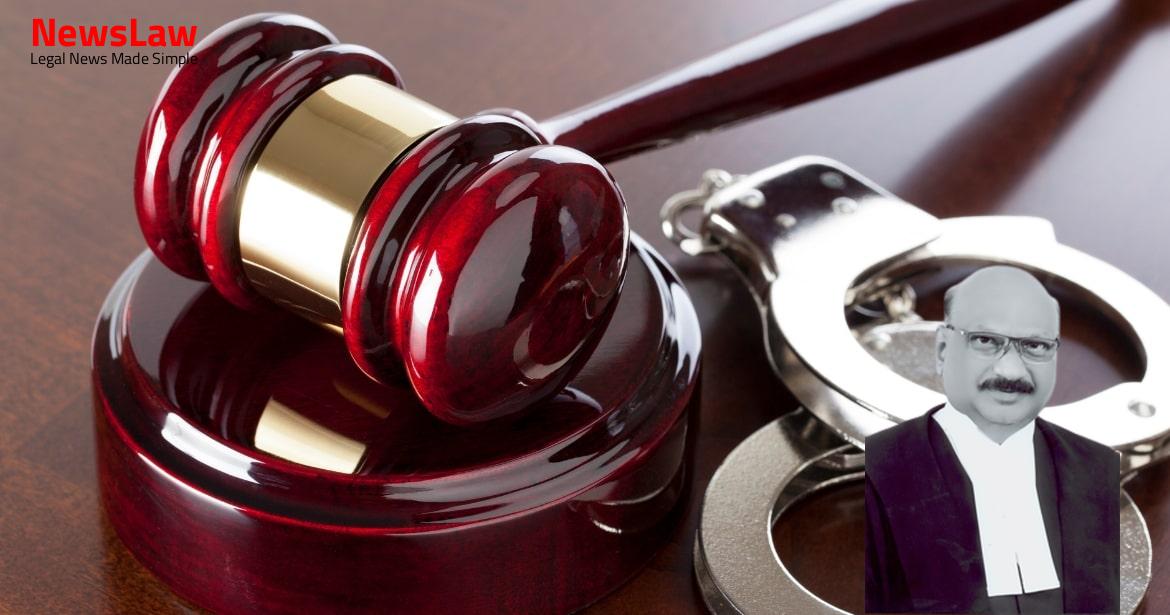Delve into the nuances of court jurisdiction and legal analysis in criminal proceedings, exploring the restrained exercise of inherent powers under Section 482 of the Cr.P.C. The High Court’s meticulous evaluation of jurisdictional aspects and adherence to legal principles provide insights into the proper application of the law in complex cases.
Facts
- The High Court did not interfere with the order of dismissal of the Protest Petition filed by the Petitioners.
- The special leave petition is against a final judgment and order dated 7 March 2022 passed by the High Court of Judicature at Allahabad.
- The Petitioners had challenged the order dated 17 September 2021 passed by the 4 Additional District and Sessions Judge, Hathras.
- The complaint giving rise to these proceedings was filed under Section 365 read with Section 511 of the IPC and Section 3(1)(Dha) of the Atrocities Act.
- The complaint was filed at the instance of Devendra Agarwal, Ex-MLA, a political opponent of the Petitioner No. 1.
- The Petitioner No. 1 and Devendra Aggarwal had contested elections against each other multiple times.
- Earlier, a complaint was filed alleging abduction and caste-based abuse by the Petitioner towards the Respondent No.2 in connection to the MLC election of 2010.
- Meera Devi filed a protest petition which was dismissed.
- A complaint was registered, leading to the start of Crime Case No. 17/2010.
- Pushpendra’s father, Ramhari Sharma lodged an FIR against Devendra Aggarwal as Accused No.1, initiating a criminal case under Section 302 of the Indian Penal Code.
- Devendra Aggarwal, being a sitting MLA of the ruling party, was not immediately arrested due to his position.
- The case was investigated by the Circle Inspector Sadabad, Hathras.
- On 17 September 2021, the Additional District and Sessions Judge, Court No.4, Hathras took cognizance of the charges against the Petitioners and issued summons.
- The Petitioners challenged this order through an application under Section 482 of the Cr.P.C in the High Court, seeking to quash the proceedings in Complaint Case No. 19/2018 and the cognizance order.
- The High Court, on 5 January 2022, admitted the application under Section 482 of the Cr.P.C. and stayed further proceedings in Complaint Case No. 19/2018.
Also Read: Analysis of Financial Statements as Acknowledgment in Limitation Act Case
Arguments
- Mr. Ranjit Kumar questioned the jurisdiction of the Additional District and Sessions Judge in Hathras to take cognizance of the offence.
- He argued that only the Special Judge under the Atrocities Act was competent to issue summons.
- The Complaint Case No.19/2018 may have been prompted by political vendetta against the Petitioner No.1.
- The High Court did not quash the order of the Additional District and Sessions Judge as the allegations in the complaint constituted an offence under the Atrocities Act.
- The possibility of retaliation by the Petitioners after the closure of an earlier complaint cannot be ruled out.
- The inherent power of the High Court under Section 482 of the Cr.P.C. to interfere with criminal proceedings is to be exercised cautiously and only in exceptional cases.
- The Argument that the Additional District Judge and Sessions Judge had no jurisdiction to take cognizance cannot be sustained.
- There was political rivalry between the Petitioner No.1 and Devendra Aggarwal, but the complaint was lodged by a scheduled caste individual, making it valid under the Atrocities Act.
Also Read: Landmark Legal Analysis in Conviction Appeal Case
Analysis
- The power of quashing a criminal proceeding should be exercised sparingly and with circumspection, only in rare cases.
- Courts should not inquire into the reliability or genuineness of allegations in the FIR or complaint.
- Exercise of inherent powers under Section 482 should not be arbitrary or whimsical.
- Time of the Court should be spent on hearing appeals rather than entertaining Section 482 petitions at an interlocutory stage to avoid miscarriage of justice.
- Exceptional cases may allow the High Court to quash criminal proceedings to prevent abuse of the process of Court.
- Inherent powers under Section 482 can be used only when no other remedy is available to the litigant.
- Allegations that do not constitute a cognizable offense require a Magistrate’s order for investigation under Section 155(2).
- Allegations that do not disclose a cognizable offense should not be investigated by police officers except under a Magistrate’s order as per Section 156(1).
- False complaints may be lodged at the behest of a political opponent.
- Allegations that are absurd and inherently improbable to reach a just conclusion do not warrant proceeding against the accused.
- High Court must exercise its jurisdiction under Section 482 of the Code sparingly and cautiously.
- Exercise of power under Section 482 is to prevent abuse of court process or to secure justice.
- Whether a complaint discloses a criminal offence depends on the facts and essential ingredients present.
- Criminal prosecution justified by evidence does not get vitiated by mala fides or vendetta.
- Quashing of criminal proceedings under Section 482 is to prevent abuse and harassment.
- Illustrative categories for exercising power under Section 482 provided, with tests to establish the offence.
- Inherent jurisdiction must be used carefully and sparingly, in accordance with the specific tests in the statute and case law.
- Guidelines for quashing proceedings laid down in various cases must be considered by the High Court.
- Court should not embroil itself in the reliability of evidence while exercising inherent jurisdiction under Section 482.
- Limits of power under Section 482 clearly defined to be sparingly used under compelling circumstances.
- Criminal proceedings with mala fide intent or malicious motives are not permissible.
- Proceedings initiated to seek revenge or spite the accused due to personal grudges are not valid.
- Legal barriers in the Code or Act can prevent the continuation of proceedings.
- Availability of specific provisions in the Code or Act for redressal of grievances.
- Complaint Case No.19/2018 should not be quashed at the inception without further trial.
- Allegations in the complaint constitute an offence under the Atrocities Act.
- High Court correctly dismissed the application under Section 482 of the Cr.P.C.
- Retaliation by the petitioners post closure of earlier criminal case cannot be ruled out.
- Decision on truth of allegations to be made during trial.
- Court does not examine correctness of allegations in a complaint under Section 482 of the Cr.P.C. unless frivolous or not disclosing any offence.
Also Read: Analysis of Territorial Jurisdiction in Arbitration Transfer Petition
Decision
- Documents show that Petitioner No.1 has advanced stage lung cancer.
- Petitioner No.1 is on strong medication.
- The special leave petition has been dismissed.
Case Title: RAMVEER UPADHYAY Vs. THE STATE OF UTTAR PRADESH (2022 INSC 455)
Case Number: SLP(Crl) No.-002953 / 2022



